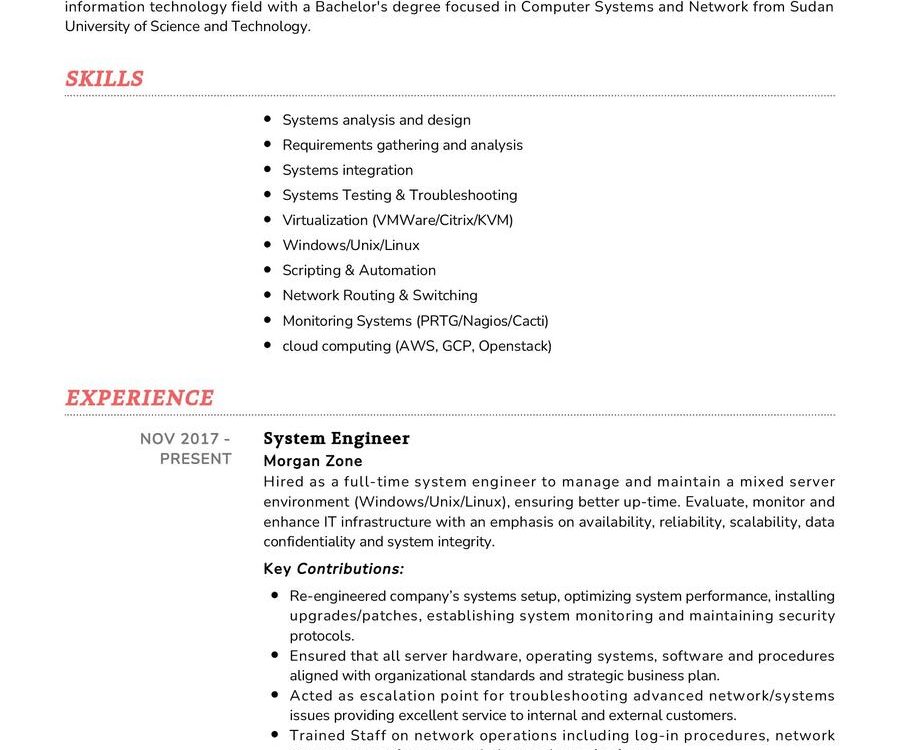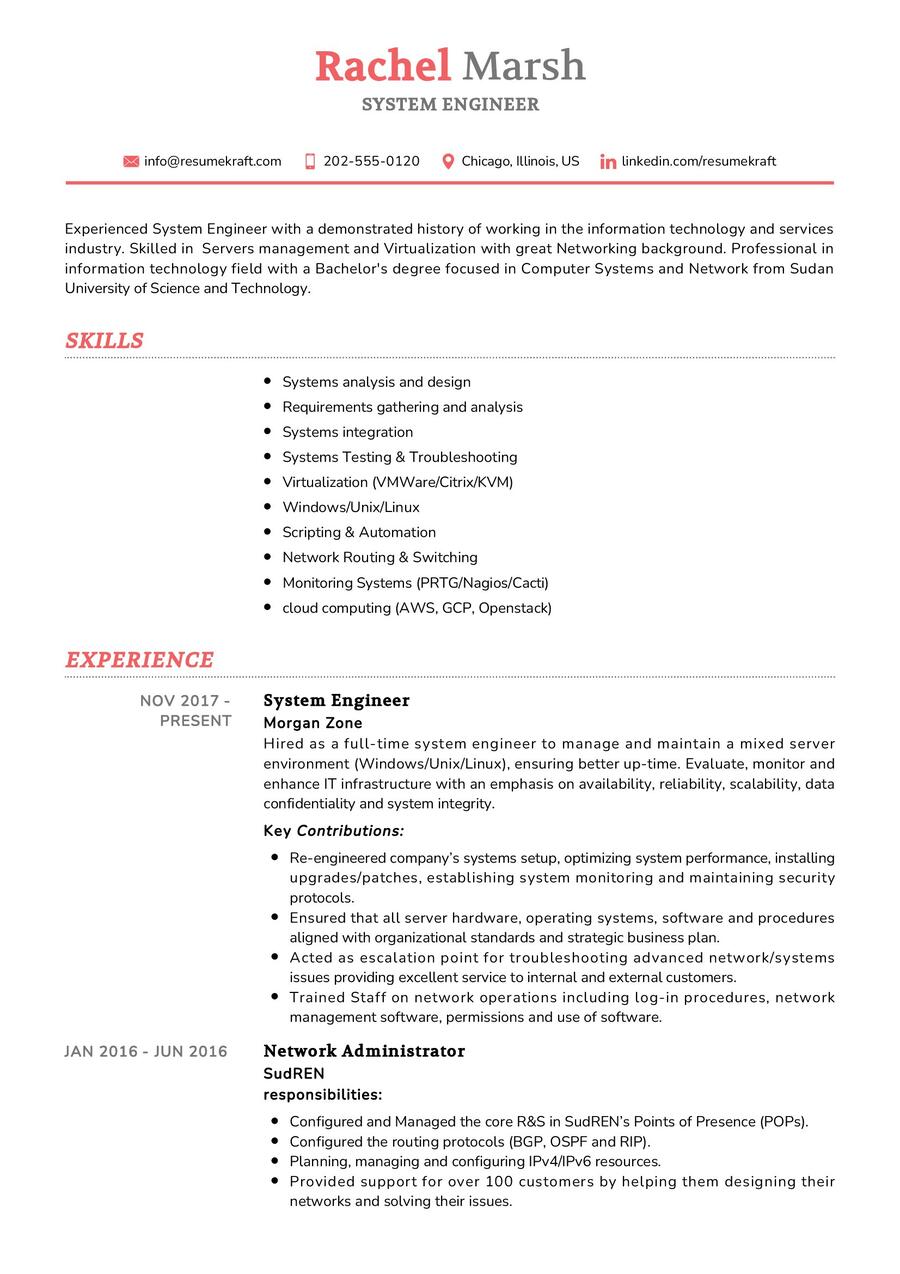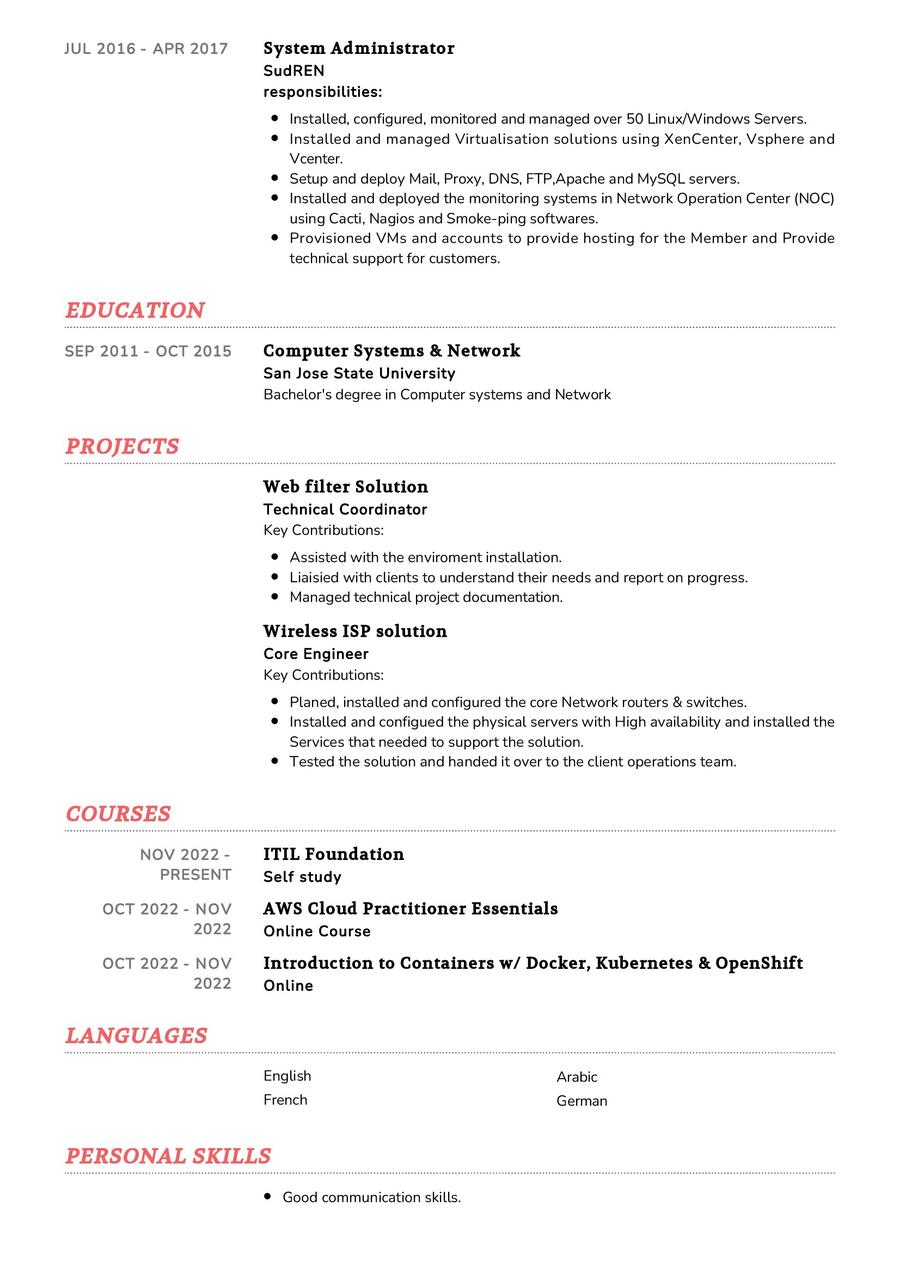Exploring the Vital Role of a System Engineer
As technology continues to advance, the role of a System Engineer has become indispensable in organizations worldwide. This article dives into the multifaceted responsibilities of a System Engineer, a position that demands a unique blend of technical prowess and strategic thinking to ensure the seamless functioning of an organization’s IT infrastructure.
What are the Key Responsibilities of a System Engineer?
A System Engineer plays a pivotal role in designing, implementing, and maintaining an organization’s IT systems. Their responsibilities encompass a wide range of tasks, ensuring that the technological backbone of the company remains robust and efficient. Let’s delve into the core responsibilities that define the role of a System Engineer:
- Designing and implementing scalable and secure IT systems that meet the organization’s requirements.
- Ensuring the availability and reliability of servers, networks, and other critical IT components.
- Collaborating with cross-functional teams to understand business needs and aligning IT solutions accordingly.
- Performing regular system updates, patches, and preventive maintenance to enhance system performance and security.
- Troubleshooting and resolving technical issues promptly to minimize downtime and disruptions.
- Conducting system audits to identify vulnerabilities and implementing measures to enhance cybersecurity.
- Documenting system configurations, processes, and procedures for future reference and training purposes.
Each responsibility reflects the dynamic nature of a System Engineer’s role, where adaptability and problem-solving skills are paramount.
What Qualifications are Required for a System Engineer?
Becoming a successful System Engineer involves meeting specific qualifications that showcase a strong foundation in both technical and problem-solving domains. Here are the key qualifications required to step into the role of a System Engineer:
- A Bachelor’s or Master’s degree in Computer Science, Information Technology, or a related field.
- Profound knowledge of operating systems, network protocols, and IT infrastructure.
- Hands-on experience with system administration, configuration, and troubleshooting.
- Certifications such as Microsoft Certified: Azure Solutions Architect or CompTIA IT Fundamentals can boost your profile.
- Strong analytical and problem-solving skills, crucial for diagnosing and resolving complex technical issues.
- Excellent communication skills to collaborate with diverse teams and convey technical information to non-technical stakeholders.
- Adaptability and a proactive approach to stay abreast of evolving technologies in the IT landscape.
Securing these qualifications sets the stage for a successful career as a System Engineer.
Day in the Life of a System Engineer
Understanding the daily routine of a System Engineer provides valuable insights into the challenges and rewards of the role. A typical day may involve:
- Reviewing system performance metrics and addressing any anomalies.
- Collaborating with the development team to integrate new applications into the existing infrastructure.
- Responding to help desk tickets and providing timely solutions to end-users.
- Conducting regular system backups and testing disaster recovery plans.
- Participating in meetings to discuss upcoming projects and technological upgrades.
- Staying informed about the latest advancements in IT and exploring how they can be applied to improve system efficiency.
This glimpse into a System Engineer’s daily routine illustrates the dynamic and diverse nature of the role.
System Engineer CV Writing Tips
Crafting a compelling System Engineer resume is essential to stand out in a competitive job market. Here are some tips to help you create a resume that highlights your skills and experiences effectively:
- Emphasize specific projects where you played a key role in designing or optimizing IT systems.
- Showcase instances where your troubleshooting skills led to the swift resolution of critical issues.
- Quantify your achievements, such as reducing system downtime or improving response times.
- List relevant certifications and training programs, demonstrating your commitment to professional development.
- Customize your resume for each application, aligning your skills with the specific requirements of the job.
Each tip is a valuable addition to your resume-building toolkit, ensuring that your CV reflects your expertise and accomplishments effectively.
System Engineer CV Summary Examples
Your resume summary serves as the opening statement of your CV, providing a snapshot of your skills and experiences. Here are some examples tailored for a System Engineer:
- “Experienced System Engineer with a track record of designing and implementing robust IT infrastructures, adept at troubleshooting and enhancing system performance.”
- “Results-driven System Engineer with a passion for optimizing IT systems, proven success in reducing downtime and improving overall system efficiency.”
- “Detail-oriented System Engineer with expertise in network administration and cybersecurity, committed to ensuring the reliability and security of organizational IT systems.”
Each summary encapsulates the unique strengths and experiences that make you a standout System Engineer.
Building a Strong Experience Section for Your System Engineer CV
The experience section of your CV is a narrative of your career journey, showcasing the impact you’ve made in previous roles. Here are some examples to guide you:
- “Led a team in the successful implementation of a new server infrastructure, resulting in a 30% improvement in overall system performance.”
- “Revamped the organization’s cybersecurity measures, reducing the risk of data breaches by implementing advanced monitoring and threat detection systems.”
- “Played a key role in the seamless migration of critical applications to the cloud, optimizing resource utilization and reducing operational costs.”
Each experience narrates a story of challenges met, solutions found, and contributions made to the success of the organization.
Educational Background for Your System Engineer CV
Your educational background is a crucial component of your CV, reflecting your knowledge and expertise. Here’s how you can showcase your academic achievements:
- Master of Science in Computer Engineering, XYZ University, a comprehensive program that laid the foundation for my technical skills, 2018.
- Bachelor of Technology in Information Technology, ABC University, the cornerstone of my IT career, 2014.
- CompTIA Security+ Certification, a testament to my expertise in IT security, 2019.
Each educational qualification contributes to your credibility as a skilled and qualified System Engineer.
Key Skills for Your System Engineer CV
Your skill set is a toolbox equipped with a diverse range of tools honed over the years. Here are the essential skills that a System Engineer should possess:
Soft Skills:
- Problem-solving abilities, the knack of finding effective solutions to complex technical challenges.
- Communication skills, the ability to convey technical information clearly to both technical and non-technical stakeholders.
- Attention to detail, ensuring thoroughness in system configurations and troubleshooting processes.
- Adaptability, the flexibility to navigate evolving technologies and industry trends.
- Collaboration, working effectively with cross-functional teams to achieve common goals.
Hard Skills:
- Expertise in server and network administration, ensuring the optimal functioning of IT systems.
- Proficiency in cybersecurity measures, safeguarding organizational data from potential threats.
- Scripting and automation skills, streamlining routine tasks and enhancing system efficiency.
- Knowledge of cloud computing platforms, facilitating the integration of cloud solutions into existing infrastructures.
- Project management, overseeing the successful execution of IT projects from conception to completion.
Each skill is a valuable asset, contributing to your ability to excel as a System Engineer.
Common Mistakes to Avoid When Writing a System Engineer CV
While crafting your CV, it’s crucial to steer clear of common pitfalls that can hinder your chances of landing your dream job. Here are some mistakes to avoid:
- Using generic job descriptions without highlighting your specific contributions in previous roles.
- Overlooking the importance of quantifying achievements, missing an opportunity to showcase the impact of your work.
- Neglecting to tailor your CV for each application, potentially missing key skills and experiences relevant to the job.
- Focusing solely on technical skills and neglecting to highlight soft skills and interpersonal abilities.
- Skipping the proofreading process, which can leave a negative impression on potential employers.
Avoiding these mistakes ensures that your System Engineer CV is polished, compelling, and effectively communicates your qualifications.
Key Takeaways for Your System Engineer CV
As we conclude this comprehensive guide, remember these key takeaways when crafting your System Engineer CV:
- Highlight your unique contributions in previous roles, emphasizing the impact you’ve made on IT systems.
- Showcase a balance of technical proficiency and soft skills, illustrating your ability to collaborate and communicate effectively.
- Quantify your achievements with specific metrics, providing a tangible demonstration of your success.
- Continuously update your skill set to stay current with the latest advancements in IT and technology.
Utilize the resources available at AI CV Builder, CV Design, CV Samples, CV Examples, CV Skills, CV Help, CV Synonyms, and Job Responsibilities to create a standout application and prepare for the System Engineer job interview.



